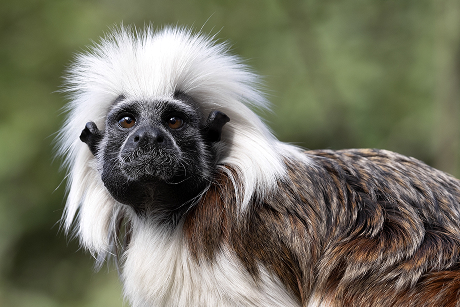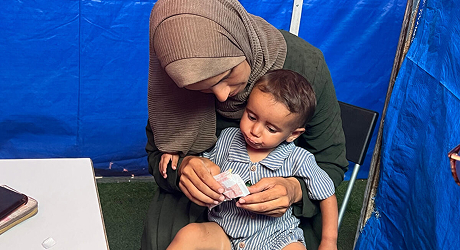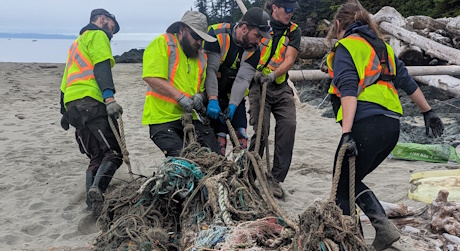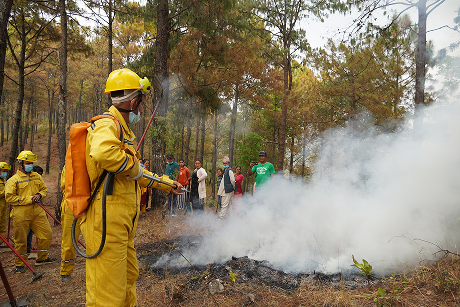Footprints Project
Since 2005, travelers like you have helped us change the world through micro-donations.
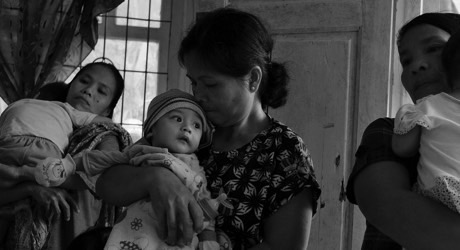
-
A total of
7018
Travelers
-
donated
$25008.24
(100% funded) -
to help improve
Health
-
impacting
1000
people -
in
Indonesia
Project Background
Nias island is the largest island off North Sumatra province’s west coast in Indonesia. It has a significant level of poverty and is ranked well below the Indonesian national standards. The Nias government requested SurfAid to expand its Mother and Child Health (MCH) program to the Gido subdistrict, where health outcomes have consistently been some of the worst in Nias. At the start of the programme, services were poor at the local mother and child Posyandu (Community Health Post), and health staff capacity was very low, leading to low attendance at the Posyandu.
SurfAid worked successfully with the local government and communities to improve this. We supported village midwives to increase their capacity to deliver antenatal care services, supported the health volunteers (Kader) to run the Posyandu, and delivered training and supported communities on key health behaviours that are crucial for MCH.
However, the uptake of key health behaviour – immediate and exclusive breastfeeding – continues to be low, putting infants at risk. Exclusive breastfeeding (meaning no food or drink other than breast milk) prevents pathogen ingestion through food and water, and in light of Gido’s compromised water quality, is a vital safeguard against infections.

Key Project Activities
Conversations with members of the local community shed light on deeply rooted cultural practices and beliefs that hinder the adoption of exclusive breastfeeding. There was a prevailing lack of awareness regarding the multiple advantages of breast milk. The pivotal challenge, however, was the lack of support from husbands, as women on Nias are often engaged in farming duties far from home.
Traditionally, women are expected to resume fieldwork three months after childbirth to support their spouses. They leave their infants with slightly older siblings or grandparents for prolonged periods, since community members strongly believe that infants should not accompany mothers to the fields. As mothers are more likely to breastfeed their babies directly (as there are often no absence of bottles, pumps, or ways to store breastmilk), infants do not receive exclusive breastfeeding as recommended.
To address these issues, SurfAid:
- Developed culturally appropriate informational materials to increase community engagement and understanding about the importance of breastfeeding, including practical guidelines for breast milk storage. This included bespoke video instructions, posters and brochures in the local language.
- Distributed the materials to the District Health Office, Regional Hospital, village midwives, and Kader Posyandu, and trained these stakeholder groups to use the materials, so that they can continue the interventions beyond this programme.
- Provided “classes for fathers” to improve their understanding of key women’s health issues, and especially to support exclusive breastfeeding practices. In Nias, men and in-laws still hold significant household-level decision-making power, so any solution must include them.


Key Project Outcomes
This project contributed directly to SurfAid's ongoing Mother and Child Health EHOWU2 program. EHOWU2’s central focus is to respond to key challenges the communities of Gido faced, including lack of access to quality basic health services, low access to basic health knowledge, and a lack of clean water and sanitation facilities.
This project contributed specifically to key behaviour change on immediate and exclusive breastfeeding, which in turn contributed to the overall EHOWU2 program results of lower infant and maternal deaths.
Specifically, the percentage of mothers and caregivers who:
- have knowledge of the 5 priority MCH behaviours. (antenatal care, exclusive, immediate breastfeeding, colostrum, birth spacing) went from 29% to 60%
- practise the 5 priority MCH behaviours went from 41% to 53%.
Further, some men, specifically fathers, included in the project changed their thinking about their contribution and responsibilities on childcare and support for breastfeeding. This is significant and the impacts of such changes in parenting practice cannot be underestimated.

Posyandu in Hiliduho served not only children but pregnant women. Posyandu Kader gave vitamins to the pregnant woman. The Kader asked pregnant women to come regularly to check up on their pregnancy. (Photo by: Adzwari Ridzki)
Community involvement
SurfAid’s programmes seek to increase enthusiasm and demand for behaviour change activities, rather than providing short-term incentives for people to get involved, which often prove to be ineffective for longer-term sustainability. Levels of demand for programme activities directly correlates to positive uptake and outcomes. SurfAid worked to create an environment where community members wanted to participate, contribute or even become health volunteers (Kader), by demonstrating the benefits to families and communities, creating a supportive environment, and removing barriers to becoming Kader.
The Kaders served as peer educators and worked with SurfAid staff to create the relevant materials. Almost 100% of the health volunteers are women. Through an empowering methodology, SurfAid fosters local leadership, cultivating the potential of village residents to drive community progress. In a sign of progress, Kaders were able to voice their aspirations for village strategy in the village decision-making forum. Having women included in decision-making processes and feeling confident and able to use their voice to pursue the changes they wish to see is one of this project’s and EHOWU2’s greatest achievement.
What's next?
A year after the project ended, an impact study was done. It concluded in general the results of the EHOWU2 program were still good. The number of toddlers visiting the Posyandu was still high, as was the skill level of Kader. Prenatal care and childbirth with the assistance of health workers continued to be good. The skilled Kaders kept delivering quality information and support to the key behaviours.
These results are sustained by policy support from the central government to villages related to MCH and support from the local government for Posyandu, as indicated by the existence of a special line in the village budget (APBDes). In some villages the budget had even increased.
Traveling soon? When you buy travel insurance with us, you can make a contribution towards a cause you care about.
Get a quote